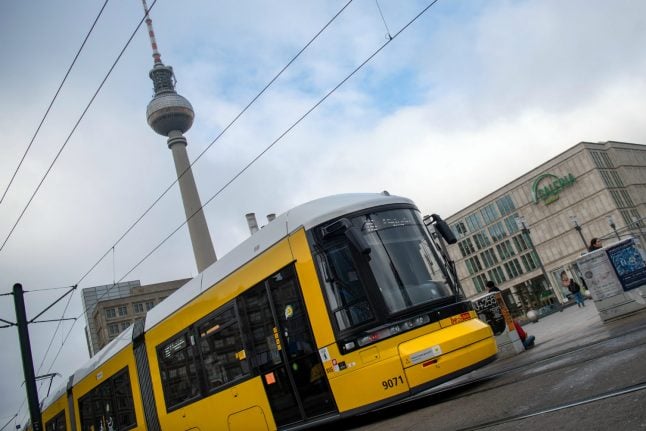Michael Müller said he was “inspired' by Vienna's public transport ticket system and said Berlin could learn something from it.
“I want to pursue the goal step by step of being able to offer an annual ticket for local public transport for €365,” said the SPD politician during a panel discussion by Swiss newspaper the Neue Zürcher Zeitung (NZZ).
The discussion, which involved sharing ideas on different cities, was held between Zurich mayor Corine Mauch, Vienna mayor Michael Ludwig and Berlin's Müller.
Petition calling for cheaper public transport
Annual passes for the S-Bahn, U-Bahn, bus and tram system in Berlin currently cost €728 or €761 depending on the method of payment. But there have been repeated calls to drastically reduce the price of the pass.
At the beginning of last year, the Clever Cities Initiative, founded by Berlin traffic activist Heinrich Strößenreuther, launched a nationwide petition calling for the annual ticket to be reduced to €365 per year. “One euro a day for buses and trains – that is a clear sign for clean air, for an effective climate policy and for a long overdue traffic turnaround at federal level,” said Strößenreuther in February 2018.
SEE ALSO: Germany considers free public transit in fight to banish air pollution
He argued that the government could finance this initiative by reallocating diesel subsidies to it. The petition has been signed by more than 32,000 people.
How can Germany reach air pollution targets?
Germany is trying to think of ways to reduce air pollution to reach EU air pollution targets. The government last year said it was considering free public transport “to reduce the number of private cars”.
READ ALSO: Why this German city plans to make public transport free
Since then, five German cities – Bonn, Essen, Herrenberg, Mannheim and Reutlingen – have been earmarked to offer significantly cheaper transport tickets, with the government poised to subsidize the projects with €128 million to help cover the income shortfall.
Improvements needed
In Vienna, the city government lowered the price for annual tickets, which are paid in advance, from €449 to €365 in May 2012.
The effects are positive: the number of annual tickets sold, which was 303,000 in 2005 and around 373,000 in 2012, has risen sharply. Last year, the company that runs local transport, Wiener Linien, put the figure at 822,000.
It is proudly pointed out that there are now more annual tickets sold in Vienna than there are cars.
The number of passengers using public transport also increased – from around 875 million in 2012 to 961 million in 2017.
However, Vienna points out that improving and expanding transport services is also integral to the success of their system. In 2017, the Vienna U-Bahn network was extended by almost five kilometres, and further new lines are planned.
In Berlin the U5, which previously only ran east of Berlin's central Alexanderplatz, is undergoing expansion. But no decision has yet been made to extend further parts of the underground network although feasibility studies are dealing with possible extensions of the lines U6, U7 and U8.
The Berlin Senate has, however, pledged to inject the public transport system with €28 billion over the next 15 years in a bid to upgrade the network, with trams being the current main focus of the project.



 Please whitelist us to continue reading.
Please whitelist us to continue reading.
Totally up for this! Other than the obvious cost savings, the reduction of noise and air pollution and a better flow of traffic in and around the city centre will help with growingly harsher climate conditions. There, however, needs to be clear targets set for the pollution levels though. This will give a measurable indication of how effective it is/was.
It’s still a win-win situation for all but as pointed out the lines would need to be expanded. Else it will just shift the congestion to the rail system.